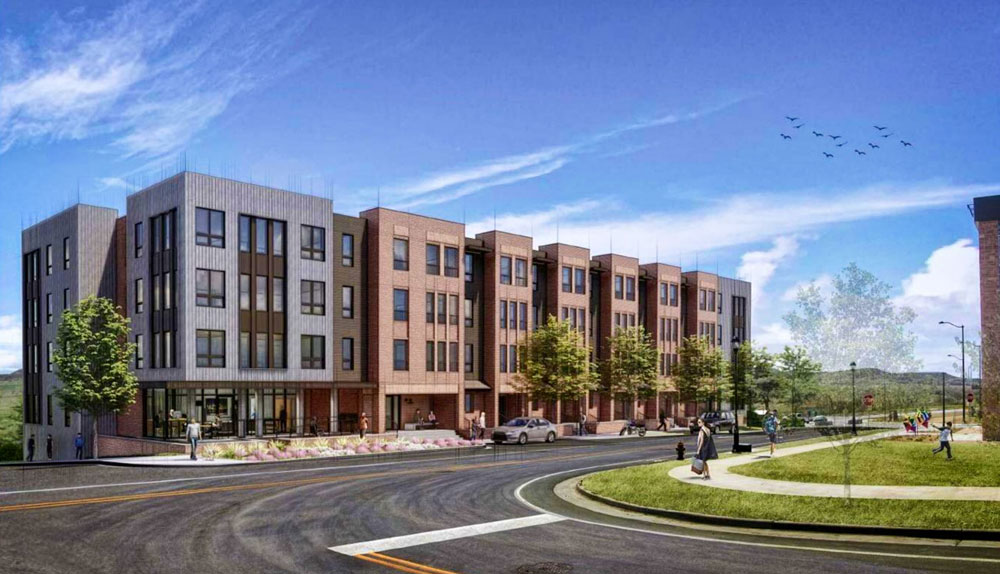Cities put greater focus on attainable housing
By Chris Michlewicz; photo courtesy of Koelbel and Company

Regional efforts to increase the availability of attainable housing are resulting in incremental progress toward a goal to create a place where people can work and live.
Affordable housing has been a topic of discussion at the state, county and municipal level for years, and more government agencies are incorporating goals to broaden the housing stock into their comprehensive plans.
The east side of RidgeGate, which is now in the beginning stages of development, has elements of attainable housing, including the 67-unit RidgeGate Station Apartments that Koelbel and Company broke ground on in May.
“We are thrilled we have the opportunity to bring to market much-needed affordable housing opportunities to residents in this high-need area of Lone Tree,” said Carl Koelbel, chief operating officer of Koelbel and Company.
The Colorado Housing and Finance Authority provided Koelbel with a highly competitive financing award for the development, although it did not specify the terms. The cost of the apartments also has not been specified, but they will be made available to residents making 30% to 80% of the median income in the area.
Lone Tree waived the building permit fee, and Mayor Jackie Millet said the city won’t be complete without “housing for everyone. It’s an important piece of that overall puzzle.”
RidgeGate East includes additional affordable housing units, and it has timelines and triggers that will be phased in with the development, said Roshana Floyd, senior planner for Lone Tree.
Floyd said the City is taking a fresh look at code and design guidelines, and is embarking on an update of its comprehensive master plan in the coming months. The process will allow city leaders to determine “longer-term policy directions” related to attainable housing, she said.
Lone Tree is participating in the Inclusionary Housing Ordinance Cohort, a program launched by the Denver Regional Council of Governments after the passage of House Bill 21-1117, which gave local governments in Colorado “newly clarified authority to enact and enforce inclusionary housing ordinances.”
Castle Pines has also discussed ways to incorporate attainable housing into new and existing areas of the city. Of the overall approved 5,000 dwelling units in The Canyons planned development, roughly 1,500 multifamily units will broaden the availability of affordable housing in Castle Pines, a subject that has been discussed by City leaders as a priority in the coming years.
Seventy-five dwelling units in The Canyons have been identified as workforce housing. The inclusion of the 75 units in the development plan was “to make sure people in the workforce who are serving the community, like teachers and first responders, that these folks could live here. That was the idea and the intention,” said Castle Pines City Council Member Deborah Mulvey, who served on the city’s planning commission when the plan was approved.
“It takes purposeful planning on the part of our community development team and the majority of Council and Planning Commission to make sure that when we’re talking to developers in all areas of town, to make sure that what we’re putting in is the full breadth of available product for the full breadth of people who live here,” Mulvey said.
She said rezoning efforts and requests to increase housing densities are a good opportunity to work with developers to include condos, apartments and attached housing into their plans.